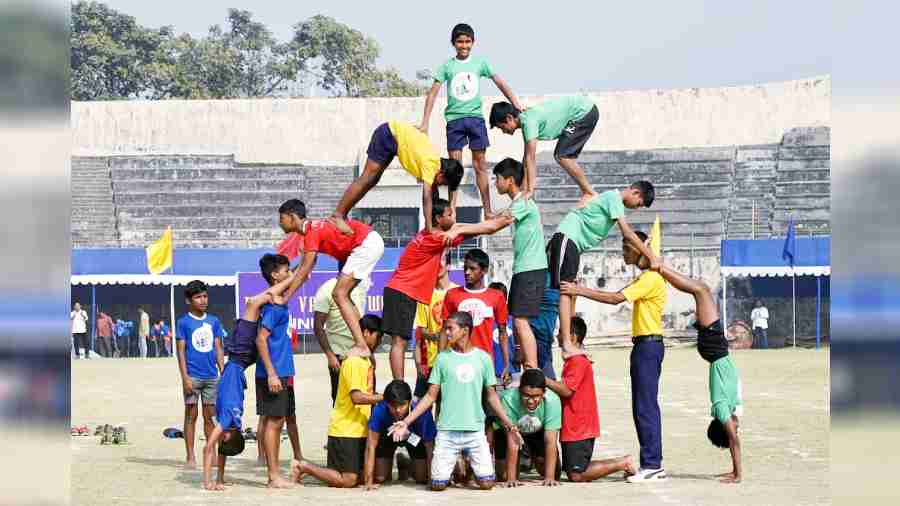Several mainstream schools in the city included children from financially disadvantaged homes and those with disabilities in their sports day this winter.
Sports is a leveller and students from diverse groups should learn to interact with each other and share what is best in them, said teachers and those who work with them.
On the field, students from NGOs had little inhibition and ran fast and with confidence while the audience, mostly parents of children in mainstream schools, applauded them.
At Indus Valley World School, one track in all the races was for Future Hope School, where children from financially disadvantaged homes study.
In South City International School, a group of children who are visually impaired were on the field.
At Modern High School for Girls, a student from a financially disadvantaged background carried a house flag on sports day for the junior school. The girl, like some other students, is studying in Modern High with support from an NGO.
At Loreto Convent Entally, students from Rainbow Homes — that Loreto runs for underprivileged children — were included on sports day for the first time. The children participated in a relay race that had students from different Loreto schools.
“No child should be left out. Such interaction is essential because everyone should know about each other. There should be a support system and children should understand each other’s needs. It should be part of growing up,” said Sujata Sen, chief executive officer, Future Hope.
The interaction makes children from privileged homes more sensitive and empathetic to students from diverse backgrounds and they do not treat them as “others”, a teacher said.
“The children come to us from nursery and they learn to interact with each other on an equal footing. The economic status does not impact their performance. We believe in doing this quietly, which helps the integration,” said Devi Kar, director of Modern High School for Girls.
The chance to participate in sports and, sometimes, outshine students from mainstream schools also builds the confidence of children from underprivileged homes.
“To be able to participate in a stadium with a crowd of 2,000 cheering them or watching them is a huge boost to the children’s confidence. As for our children, it is humbling to being outperformed by them and value the privileges that they enjoy,” said Amita Prasad, director, Indus Valley World School.
“It teaches our students to respect the ability and potential of students from underprivileged backgrounds,” she said.
Empathy cannot only be taught, it has to be felt and this can happen with active participation, said Sen.
It is not children alone who learn from this. Their parents, too, gain from the exposure.
“After sports day, some of the parents wrote to us that it was an enriching experience for them to see individuals with visual impairment run a race. One of them shared that they were almost in tears,” said John Bagul, principal of South City International School.
Jessica Gomes Surana, principal of Loreto Convent Entally, said the interaction was mutually beneficial.
